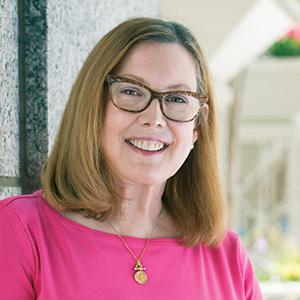
A situation involving an extremely offensive tweet by actress and comedian Roseanne Barr earlier this year elicited a swift and decisive response from ABC—cancellation of Ms. Barr’s top-rated television show.
Money and TV ratings aside, this action signaled that we want respect for multicultural values in our society. This is a critically important message in a political climate where some in our society perceive that they have license to openly denigrate others based on race, religion, sexual orientation, and disability or immigration status.
A short while before the Barr incident, Starbucks responded quickly to racist behavior by an employee with a plan to demonstrate a long-term commitment to diversity by launching an effort to combat racism and eradicate racial bias in the company.
Starbucks’ management has reached out to leaders in the field to develop an approach to educating their employees and making changes in corporate policies with the intention to eliminate the negative outcomes of unconscious bias.
Both of the incidents I have described were high-profile and the actions that followed were widely covered in the press. Corporate response in both cases was swift. These responses along with similar rapid corporate responses to the sexual assault and harassment of women in the workplace are a positive development in a society that continues to grapple with every kind of “ism.”
There is no doubt that financial interests drove some of the corporate decisions to an extent, and some might say the focus was entirely on their bottom lines. But I think that would be selling our corporate citizens short and not taking into account the vast influence these companies have in our society.
For example, Starbucks has 8,000 locations throughout our country and employs an estimated 176,000 people. Likewise, ABC—as a large television network, owned by Disney-ABC Television Group—has significant influence in terms of the people it employs and the kind of programming it produces for its viewers.
We should not underestimate how powerful it can be when such organizations choose to act in ways that value diversity and demonstrate intolerance for racism or any other form
of discrimination.
The change in the White House administration has shown us where our continuing weaknesses and challenges are in the fight against racism. Every day it seems like there is some new incident or statement that leave many of us wondering where to begin in our efforts to push back against racism and other forms of discrimination.
A good place to begin might be by focusing on what MSNBC referred to as “everyday racism” in a recent special network presentation, Everyday Racism in America (msnbc.com).
MSNBC presented an in-depth look at what many white people simply don’t understand—the everyday racism or microaggressions that people of color experience and endure on a daily basis as they are looked past in the checkout line, are surveilled by store personnel, or bear witness to white people clutching their purses a little closer or crossing the street when they encounter a person of color. And worse, when some have to deal with calls to the police about “suspicious behavior.”
I am reminded of the incident of the black Yale student who was reported to the police by a white student for napping in the common room of her dorm. Lolade Siyonbola, a tuition-paying student who had earned her place at Yale, was called on by campus police to justify why she was in the common room. There are countless other examples that could be cited.
MSNBC’s town hall panelists included individuals who are invested in eliminating racism and promoting civil rights in our country. In addition to hearing from a number of audience members, including Ms. Siyonbola, panelists provided their perspectives on everything from being concerned for those who did not have friends to support them, to a reflection on our current status as a society when it comes to race relations.
This town hall can serve as a model and inspiration for all of us as we think about what spaces we can create, or perhaps find, that can offer the opportunity for us to have conversations that are both courageous and compassionate.
We must actively seek and use these opportunities if we are going to move forward on our journey to tear down the everyday and institutional racism that keeps us from being a country that can truly and collectively thrive.
The Starbucks incident and Ms. Barr’s egregious tweet represent our special challenge to have those important talks, to listen with our hearts, to have an honest exchange of ideas and to dialogue across differences.
We need to redouble our efforts to learn about the experiences of others and find ways to stand up and raise our voices against racism—to risk conflict with others to be on the right side of the issue.
One thing we can be
certain of as social workers is that racism and discrimination in any form have no place in our society, as our Code of Ethics reminds us.
Contact Kathryn Wehrmann at president@socialworkers.org.